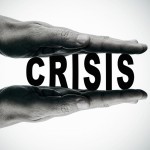
Dave Steele summarises an NIHR funded mixed methods study that concludes we don’t know much about how we should support older adults with mental health problems, except to say that we should be doing better.
[read the full story...]
Dave Steele summarises an NIHR funded mixed methods study that concludes we don’t know much about how we should support older adults with mental health problems, except to say that we should be doing better.
[read the full story...]
Chris Sampson reports on a recent systematic review and critical appraisal of economic evaluations in bipolar disorder. He finds that there’s a pressing need for new studies, especially discrete event simulations.
[read the full story...]
Andrew Jones and Chris Sampson report on a systematic review and economic evaluation of cytisine and varenicline for smoking cessation, which finds that both drugs are clinically effective compared with placebo.
[read the full story...]
Elf economist Chris Sampson reports on the economic evaluation of the CoBalT RCT, which finds that CBT is cost-effective for treatment resistant depression in primary care.
[read the full story...]
Chris Sampson looks at the economic outcomes of a recent RCT of joint crisis plans to reduce compulsory treatment for people with psychosis. The study reports the potential for gains specifically among Black patients.
[read the full story...]
. Peer support has been a hot topic in the woodland recently. Although there appears to be a lack of evidence to support the clinical effectiveness of peer support interventions for people with severe mental illness, such as bipolar disorder and schizophrenia, it is an approach that is highly valued by many. It might be [read the full story…]

In addition to its impact on quality of life, panic disorder can have a number of costly consequences such as lost productivity – particularly if also associated with agoraphobia. Cost-effectiveness is therefore an important consideration in choosing the optimal treatment for panic disorder, which might improve value via the cost side of the equation. A recent [read the full story…]

Both surgical and non-surgical approaches can be used for the treatment of chronic periodontitis. The traditional approach being improving plaque control and non- surgical scaling and root planing (SRP) followed by surgical re-treatment where indicated. The main aim of this study was to compare immediate surgery with SRP in the treatment of advanced periodontal disease [read the full story…]

Sadly caries remains a significant public health problem across the world, particularly in children. The aim of this study was to assess the cost-effectiveness of caries treatment and prevention strategies in the Netherlands. The study was conducted alongside a randomised controlled trial (RCT) evaluating the effects of two caries prevention strategies compared with regular dental [read the full story…]

Treatment-resistant depression (TRD) still represents a challenge to psychiatric practice. Since patients have usually failed at least two antidepressants, drugs originally prescribed for other conditions are often tried as an augmentation (Souery er al., 2006). Amongst them, lithium (a mood-stabiliser used in the treatment of bipolar disorders) as well as atypical antipsychotics (AAPs, indicated for [read the full story…]